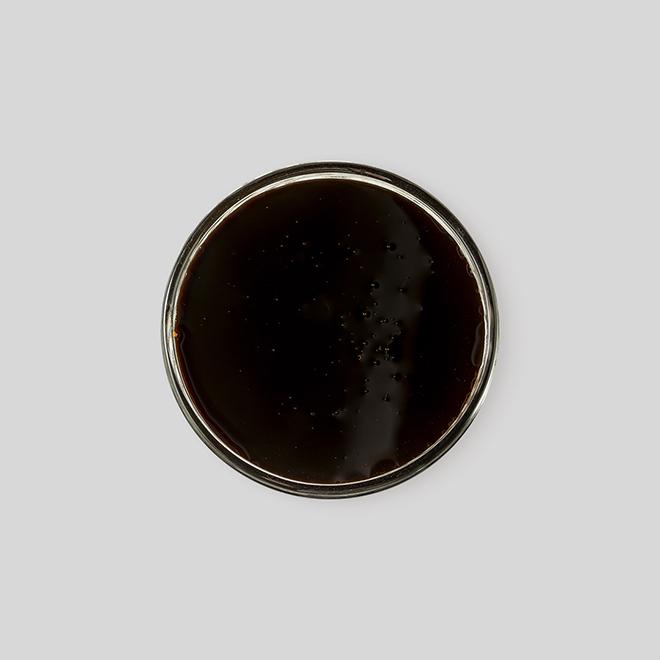Molasses




Molasses is a thick, viscous syrup obtained during the process of refining sugarcane or sugar beet juice into sugar. It is a byproduct of the sugar crystallization process and contains various natural sugars, minerals, and vitamins.
This "syrupy goodness" adds depth, character, and a touch of magic to countless dishes worldwide. It can be used in baking, sauces and marinades, beverages, glazes and toppings.
When buying molasses, look for pure molasses with minimal additives, sugars, or fillers. Choose sulfured or unsulfured based on your preference. Sulfured molasses has a lighter color and slightly different flavor, while unsulfured boasts a richer taste.
Molasses have a long shelf life and can be kept safely in a cool and dark place if unopened. Once opened, it is best to keep it in the refrigerator. When you want to use it, simply put the molasses container in a bowl of warm water or microwave to soften it up since it will thicken after a while.
Did you know molasses is healthier for you than plain sugar? You can use it to make cough syrup, just mix it with some lemon juice and ginger and you’ll have a natural soothing cough syrup.
In some recipes, molasses can entirely replace sugar and add a richer flavor. Next time you’re making energy balls, consider using molasses as a binder or mix it in with some fruits and granola for a delicious and nutritious breakfast.
There are 3 types of molasses: light, dark and blackstrap molasses.
Light molasses: The lightest variety, made from the first boiling of the sugar syrup. It has a mild flavor and light color.
Dark molasses: Made from the second boiling of the syrup, it has a stronger flavor and darker color.
Blackstrap molasses: The darkest and thickest variety, made from the third boiling. It has a very strong, bitter flavor and is often used in baking or as a dietary supplement.
Choose the right type of molasses: Light molasses is mild and sweet, while dark molasses has a stronger, more bitter flavor. Blackstrap molasses is the strongest and most bitter type, best used in savory dishes or strong-flavored baked goods.
Substitute for brown sugar: In most recipes, you can substitute molasses for brown sugar at a 3:4 ratio. For example, if a recipe calls for 1 cup of brown sugar, use 3/4 cup of molasses.
Molasses can react with aluminum, causing discoloration and an off-flavor so it’s best to use stainless steel cookware and make sure not to overcook it since the longer it cooks the more bitter the taste it gives.
Molasses, particularly blackstrap molasses, is a good source of several essential minerals, including iron, calcium, magnesium, potassium, and phosphorus. The natural sugars in molasses can act as a prebiotic, feeding the good bacteria in your gut and potentially promoting digestive health. However, be aware of the potential laxative effects of excessive consumption.
Molasses is high in sugar and calories, particularly sucrose and fructose. Excessive sugar intake can be detrimental to your health, leading to weight gain, increased risk of diabetes, and other health issues. Be mindful of portion sizes to avoid exceeding your daily calorie intake.
Corrections or improvements? Email us at
content@sidechef.com